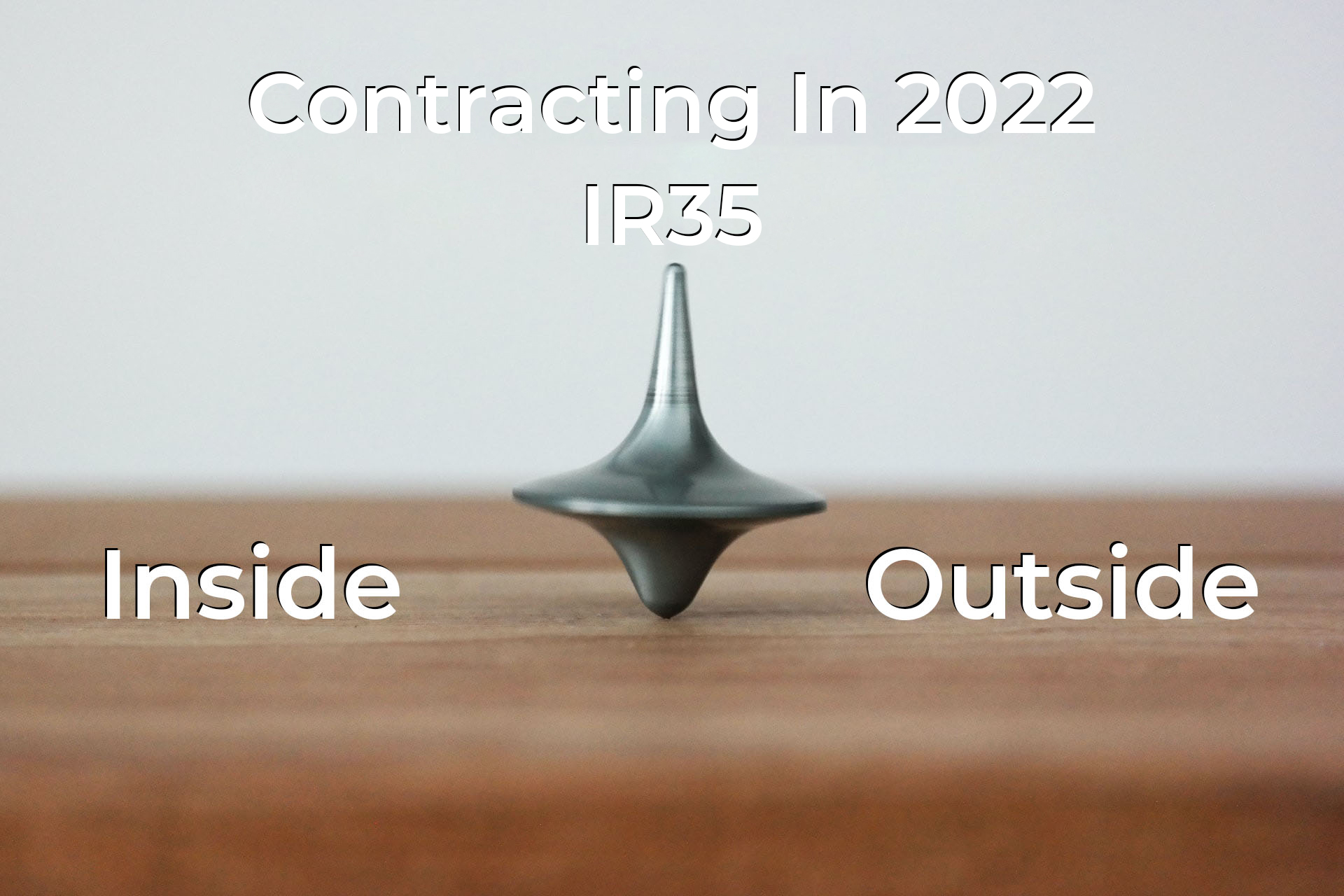
IR35 - Inside vs. Outside
Oliver Sarfas • January 30, 2022
careerTo clarify: I'm not a lawyer, nor is this article legal advice. For an official investigation / review of your contracts / services, I'd recommend speaking to someone with the necessary qualifications in Law. The following is simply my experience of IR35 as a contractor over the last 18 months.
What is IR35
‘IR35’ is the term commonly used to refer to HMRC’s ‘off-payroll working’ rules.
IR35 rules allow HMRC to collect tax and NI contributions where a contractor works through an intermediary (i.e not a sole-trader, nor umbrella company). This usually takes form of a Limited Company. If this intermediary was not in place, then the contractor would otherwise be an employee of the client.
What does 'inside' or 'outside' IR35 mean? Who decides where I fall?
Working outside IR35 means that you are entirely off payroll and in no way linked to the client as an employee. You gain no benefits from the relationship, both financial or physical.
I've found it best to ensure that all equipment, contracts, terms, and communications are established to be between the client and your company.
This is to ensure there's no disparity between who is responsible for anything. There's no personal connection to you directly. The client is hiring a company to fulfill a resource, and the company can then allocate the requirements down from there.
The new legislation for IR35 now puts the responsibility of determining a contract's status on the client. Though, there are some exceptions to this, these apply when the client;
- Has an annual turnover not exceeding £10.2m,
- Has a balance sheet total not more than £5.1m,
- Had an average of no more than 50 employees for the company’s financial year.
Should two or more of these conditions be met, the client is determined to be a "small business", and the old rules regarding off-payroll working apply.
If this isn't the case, then the decision over whether the contract is inside or outside IR35 lies with the client. This is why contracts are now being posted with Inside or Outside noted in the title
Impact of Working Inside IR35
You make less. That's the entire thing in a nutshell. You take home less, on the same rate. Though that's expected as you're paying more in NI and PAYE Tax than you'd be doing as a Ltd Employee working off dividends.
However, you do get some perks alongside this as you're treated as an employee you are allowed benefits such as;
- Staff discount
- Sick pay entitlement
- Holiday Pay (we'll get to that)
- Client supplied equipment - potentially saving you THOUSANDS
Financial Example
We're assuming there are 5 working days a week and 4 billable weeks in a calendar month
For argument’s sake, we'll give a rate of £300 per day (inc all taxes).
The numbers below were pulled using a tool provided free of charge, Paystream Calculator
Outside IR35 Financials
According to our calculator, we'd expect a take home pay of £5,339.71 - a very comfortable wage to be on.
Inside IR35 Financials
Once more, using our calculator, we get a take home of £4,039.59. A whole c.£1,300 difference! Yet still making just over £48,000 per year (after deductions).
Why the difference?
Ultimately, the majority of the take home pay difference comes from the PAYE and NI that you're going to be paying Inside IR35.
PAYE & NI
As you're technically working under payroll, you pay Income Tax based on your gross income. This means that any money paid towards you is taxable as salary. Not the most efficient way to handle things once you break the £50,270 (gross) per year threshold for 40% tax.
You also pick up the bill for the employers NI. So paying your own NI, and the NI usually payable by your employer. This equates to around £800 a month.
Inside IR 35 - Why bother?
Working inside IR35, though financially lesser, does have its benefits. One of the largest is holiday pay.
Outside IR35, if you're not working - you're not billable; ultimately losing money.
This isn't entirely the case with Inside. As part of your standard compensation, you'll get money towards a Holiday Pot. Now it's up to you whether you cash this out into each payslip, or leave it to build. Leaving it to build allows you to take time off, and not worry about missing financial targets; as you can pay yourself from the pot.
A large commitment when working outside IR35 is using and purchasing your own equipment for the job. It's a taxable deduction, however having the initial capital to put into equipment can be a daunting position. Inside IR35 this problem disappears. All equipment required to do the job necessary is supplied by the Client, so you're saving thousands instantly.
Which do I prefer?
As I already have the equipment necessary to undertake any role or contract I am deemed acceptable for; I'll always sway towards outside IR35. It's more work in terms of accounting, invoicing, and administration. However, for the extra 15-20% in earnings it's always worth the commitment.
If however, you're charging under £250 a day, or working less than 4 days a week. It might not be financially viable to look for Outside IR35, as the increased income isn't going to outweigh the lost stability and benefits of Inside IR35.